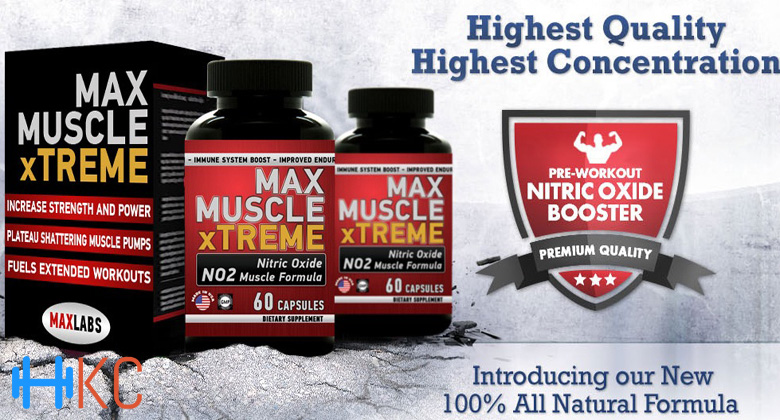With the cost of medical care and health insurance so high today, it’s no wonder Americans are turning to supplemental health insurance to fill in the gaps. What is a supplemental health insurance plan? It’s any type of insurance that covers beyond the minimum essential medical coverage. These are usually purchased in addition to “traditional” health plans, though they can also be purchased on their own.
How do you know what supplemental plans are right for you? If you’re an active person who enjoys staying fit and healthy, you should consider one of these options for additional coverage. In 2016, the U.S. health care costs were equal to $3.3 trillion. That’s big money, and it means you can always stand to have more coverage if you want to protect yourself against a financial (or health!) disaster. Keep reading for a guide to supplemental insurance plans.
How Does Supplemental Insurance Work?
First, let’s discuss how these plans work in the first place. While most people in America already have “traditional” medical coverage through their employer, supplemental plans offer something extra. The traditional coverage includes things like annual exams, tests, and office visits.
For additional care, you’ll likely be expected to pay out of pocket. This can become expensive quickly, especially in the case of an emergency. However, these plans aren’t only useful in case of emergency. They can also be a way to receive additional care such as dental or vision coverage. To view the full offerings in your area, visit HealthMarkets for a comprehensive search.
Common Supplemental Insurance Types
Now that you understand how supplemental insurance works, let’s discuss the most common types of coverage.Many of these options can be purchased through your employer if your employer already offers insurance. Additionally, if you’re covered under Medicare or the Affordable Care Act, you might be eligible for supplemental plans.
-
- Dental insurance – Most traditional plans do not offer dental insurance. This coverage will assist with things like office visits, annual exams, and emergency dental care.
- Vision insurance – Like dental insurance, this coverage isn’t included with most traditional health insurance. Vision insurance covers annual exams and more.

- Critical illness insurance – Critical illness insurance offers coverage if you fall critically ill unexpectedly. This can be costly, and you don’t want to find yourself in a situation where you’re unable to pay for emergency care.
- Disability insurance – Disability insurance offers coverage for those who are suddenly disabled and might not be able to work. This coverage is often offered through your workplace.
- Travel insurance – Contrary to popular belief, most traditional coverage does not function when you’re traveling out of the country or even out of state. Travel insurance is an inexpensive alternative that makes sure you’re always able to get care.
- Long-term care insurance – If you find yourself in need of long-term care, this coverage will help cover the costs.
- Indemnity coverage – Indemnity coverage provides compensation for time spent out of work due to illness or in the hospital.
- Life insurance – This type of policy will pay a lump sum to a beneficiary in the case of your death.
Secondary and Short-Term Insurance
A lot of people get confused between the terms “supplemental” insurance and “secondary” insurance. The terms are used interchangeably because they refer to the same products. They’re both names for additional insurance plans that work on top of your primary health insurance. Just realize you’ll likely see both terms used in reference to the same thing.
Short-term insurance, however, isn’t something you should confuse with supplemental insurance. These are two different things. Supplemental insurance is used in addition to a regular insurance plan, as we discussed before, while short-term insurance is used in place of a traditional policy.
As the name implies, short-term insurance is used to help with any short-term needs for health coverage. You might also hear it referred to as “temporary” insurance. Not everyone needs short-term insurance. In fact, there are specific situations in which you would need to purchase a short-term plan, and otherwise, you’d be better off with a secondary plan.
Who needs a short-term insurance plan?
- Those traveling outside of their coverage area whether that means international travel or out-of-state travel
- Individuals in-between employers who don’t want gaps in coverage
- Recent divorcees who were previously on a spouse plan
- Anyone who missed the open-enrollment period
You can use a supplemental plan in addition to a short-term policy, however, don’t get them confused with each other. You don’t want to be caught without coverage, so look into a short-term option if one of the above situations applies to you.
How Do You Purchase a Supplemental Plan?
Supplemental health insurance is purchased in the same way as traditional policies. You can purchase a plan through a private marketplace, a licensed agent, or even directly from an insurance company. While much of the application process is similar, you don’t need to wait for an open enrollment period.
Because you don’t need to worry about an enrollment deadline, there’s nothing holding you back from finding the right supplemental coverage for your needs. However, you might have a waiting period for some services to be covered, and there are also special qualifications if you have pre-existing conditions.
Like with any plan, consider the overall cost before making a purchase. How much coverage do you actually need? What gaps exist in your current policy, and how will this plan help ease those gaps? Do your due diligence to determine any risks in your family’s health so you can make a smart decision.
Who Should Get Supplemental Plans?
Finally, who should get a supplemental plan? What it all comes down to is your risk level. No matter who you are or your lifestyle, you’re not immune to injury or illness. The median cost of a visit to the Emergency Room today is around $1,233. That’s costly for an injury, and you don’t want to risk your financial security because of an accident.
Supplemental plans are optional. While everyone should have traditional health insurance, these plans are not necessary to receive the basic level of care. However, they’re a worthy investment when it comes to saving for your health. Consider your lifestyle. If you’re healthy and don’t participate in a high-risk activity, you might not need to plan for things like long-term care or disability. However, if you’re active in the extreme sports community, it might be worth paying extra for additional coverage.
We could all use more coverage for exams, regular check-ups, and specialized care. Finding a supplemental plan that matches your needs helps ease the financial burden of protecting your health. These plans are less expensive than you think, and they can save you big money in the future if you find yourself facing a catastrophic illness or injury.
The only person who knows if you’re a good fit for this type of coverage is you. Remember, your health is the most important thing you have. Don’t put it at risk because you’re not sure about the monthly investment. Research supplemental plans in your area to see what’s right for you. How can you prepare for a healthy tomorrow?























